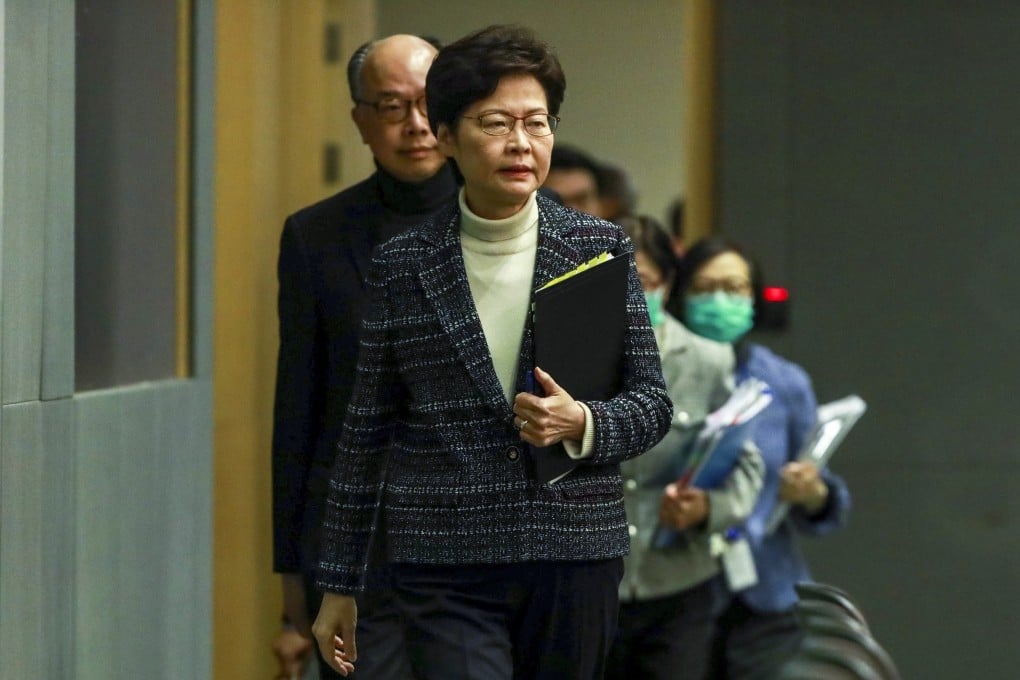Coronavirus: Hong Kong to quarantine all travellers entering from mainland China for 14 days as city’s leader invokes special powers
- Measure will take effect on Saturday to enable residents affected to make adjustments to their plans
- Lam also apologises for remark demanding that government officials only wear masks under strict circumstances in a bid to conserve supplies

Confirming an earlier report by the Post, Carrie Lam Cheng Yuet-ngor said the quarantine measures would be done through invoking the chief executive’s special powers under the Prevention and Control of Disease Ordinance.
The measure would take effect on Saturday to enable residents affected to make adjustments to their plans, she added. But Lam did not make it immediately clear how the quarantine would be enforced, including where the travellers would stay.
Lam also apologised for her remarks the previous day when she sparked controversy by demanding that government officials only wear masks under strict circumstances in a bid to conserve supplies. She clarified that when she said she would discourage them from wearing masks if they were not sick, she was only talking about principal officials.

Hong Kong recorded its first death related to the coronavirus on Tuesday.
On the outbreak, Lam said by midnight, there were 24,324 coronavirus cases in mainland China, while in Hong Kong, the situation had worsened. On Tuesday and Wednesday, there had been six new cases, increasing the total to 21. The three confirmed cases on Tuesday had no travel history.